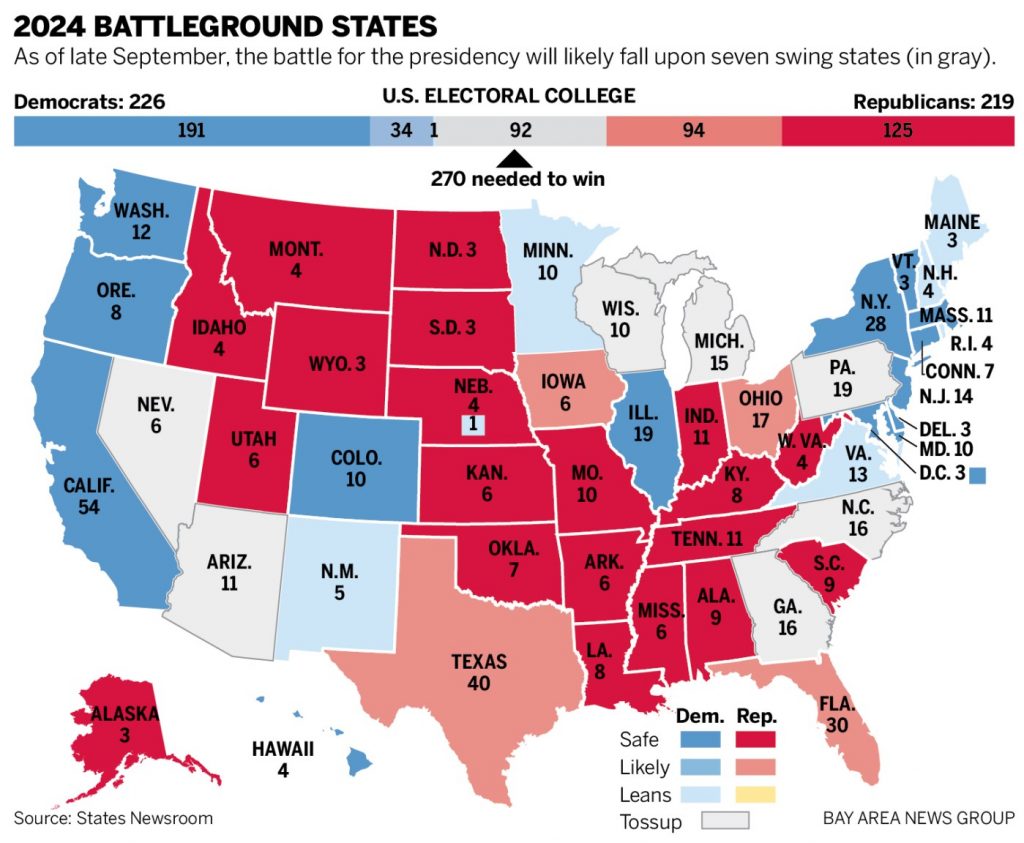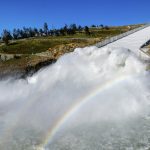In 2016 and 2020 Donald Trump lost the popular election by several million votes. But in 2016 he won in the Electoral College with slim majorities in several toss-up states. That is the only way he can win the looming election, a contest all the polls show is too close to call. Once again, it is entirely possible that we will elect a president whom a majority of American voters reject.
The rest of the world finds this arrangement incomprehensible. Although the process varies in the details elsewhere, heads of government tend to be chosen by direct vote or by the party that wins the most votes in a parliamentary election.
So the question becomes, how did the American founders, justifiably famous for their political wisdom, burden us with the strange contraption called the Electoral College?
The answer lies in the historical record of the debates at the Constitutional Convention during the summer months of 1787. As we travel back in time, there are a few features on the historical landscape unique to post-revolutionary America that will strike us as strange.
Suspicion of democracy
One is the ghost of Britain’s King George III. The debate over executive power, as recorded in contemporaneous journals, letters and articles, is difficult to follow, like watching a soccer match played with three balls and no referees. The one conviction the delegates could all agree on was that the president must not be a monarch who stood above the law. (The recent Supreme Court decision, Trump v. United States, fragrantly defied that core conviction.)
The second strange-to-us feature, even more disturbing to our current political presumptions, is a deep suspicion of democracy. Throughout the American founding the word “democracy” was an epithet, and remained so until the Jacksonian era. The watchword during the founding era was “republic,” from the Latin “ res publica” meaning “public things.” The public interest, for Madison, Jefferson, Washington and the others, was the long-term interest of the people, something the founders thought the bulk of voting Americans (white male landowners) would seldom comprehend because of their limited horizons and susceptibility to conspiracy theories, misinformation and demagogues. (Sound familiar?)
When the question of how to elect a president arrived on the agenda in August 1787, suggestions included election by the Senate, by state Legislatures and finally by popular vote in all the states. Multiple critics objected to the latter option on the grounds that popular opinion was notoriously unreliable.
These raw and misguided opinions needed to be filtered through more informed and educated minds. James Madison stepped forward to coin the term “filtration” and then “Electoral College” to describe state legislators capable of comprehending the long-term public interest, and, if necessary, over-ruling the popular vote in the states. Alexander Hamilton endorsed this “filtration” approach in Federalist 68.
Filtering the presidential choice through electors was not designed to enhance the political power of the Southern, pro-slavery states, but that in fact is what it did. During the debate over how to count population for representation in the House, the delegates passed the three-fifths clause, basing representation on “the number of whites and three-fifths of the blacks.” The political advantage the three-fifths clause gave to Southern states in presidential elections was the main reason that Thomas Jefferson was referred to as “ the Negro president” after his narrow victory in the election of 1800.
Unintended consequences
The ironies of the Electoral College abound. The founders did not foresee the emergence of political parties and their winner-take-all slates of electors, which make a mockery of all presumptions of virtuous choosing by a select few. What’s left is indeed a filtration of the popular vote, but one that has morphed into a device whereby the minority defeats the majority.
As a result, the very outcome the founders most feared, namely election of a demagogue by a gullible cult of true-believers, has been made possible because of the Electoral College, which was originally designed to avoid precisely that outcome.
Related Articles
Letters: State Senate | Pinole City Council | Pleasanton council | East Bay parks | Contra Costa elections
Letters: Measure P | Superior Court judge | Local races | S.J. council | Board of supervisors | Sunnyvale mayor
Police say the man behind ballot box fires has metalworking experience and might plan more attacks
Campaign rhetoric around US-Mexico border is extreme. Living there is a lot more nuanced
Election deniers use Telegram to rally poll watchers in swing states
Over the past century no feature of the Constitution has generated more criticism and cries for reform than the Electoral College. All have failed, largely because it would require a constitutional amendment, which the founders made politically difficult to pass, requiring a two-thirds vote in both branches of Congress and a three-fourths vote in the states. Too many legislators, not to mention state voters, would opt to retain their power rather than endorse U.S. democracy.
So we are stuck with our electoral albatross. Perhaps the danger posed by a Trump presidency will generate the energy needed for long overdue constitutional reform. If I have them right, a majority of the founders are up there cheering us on to that very end. The first item on their list of fixes would surely be killing the albatross.
Joseph J. Ellis is a Pulitzer Prize-winning historian. ©2024 Los Angeles Times. Distributed by Tribune Content Agency.


